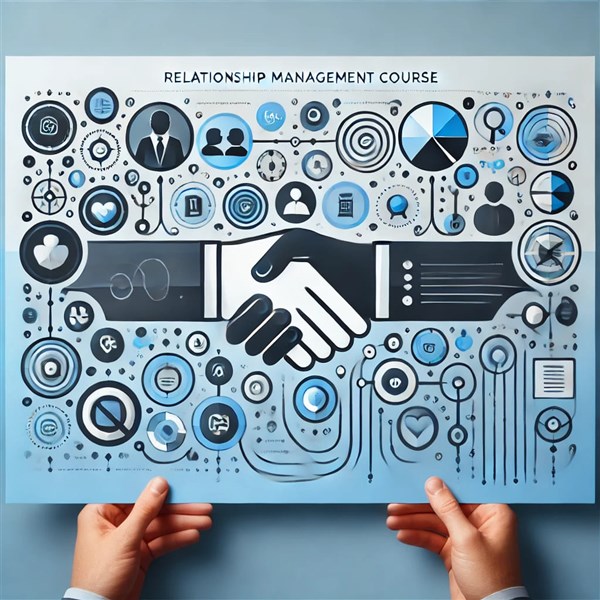Unable to find what you're searching for?
We're here to help you find it
In today’s world, where professional and personal success often depends on strong relationships, relationship management skills have become crucial. These skills empower individuals to handle interactions effectively, resolve conflicts, and build trust with others. Whether you're a customer service representative, manager, or sales professional, a relationship management course can provide tools and techniques to help you succeed in various roles and settings.
In this article, we’ll explore the key skills you’ll gain in a relationship management course, including communication, conflict resolution, negotiation, empathy, active listening, and more. By mastering these competencies, you can set yourself apart in your career and create meaningful professional relationships.
Why Communication Matters
Communication lies at the heart of all relationships. A relationship management course teaches effective communication methods, both verbal and non-verbal, to help you connect with others, express ideas clearly, and listen actively.
Skills You’ll Develop
Communication skills enable you to handle conversations better, reduce misunderstandings, and ensure that your message is clearly received.
Importance of Conflict Resolution
Conflict is inevitable in any relationship. How you handle it can either strengthen or damage a relationship. A relationship management course provides frameworks and techniques to address disagreements in a productive way.
Skills You’ll Develop
By acquiring conflict resolution skills, you can navigate challenges more effectively, leading to healthier and longer-lasting relationships.
The Role of Negotiation in Relationship Management
Negotiation isn't just about business deals; it’s about reaching an agreement that satisfies all parties. These skills are valuable in personal interactions, customer relations, and team collaboration.
Skills You’ll Develop
With strong negotiation skills, you can advocate for your interests while maintaining positive relationships, a vital skill in sales, management, and customer service.
Why Empathy Matters in Relationship Management
Empathy allows you to understand others’ feelings and perspectives, which is critical for building trust and rapport. A relationship management course emphasizes the development of empathy, helping you connect with others on a deeper level.
Skills You’ll Develop
Empathy not only strengthens interpersonal relationships but also improves team dynamics, fostering a more collaborative work environment.
The Power of Active Listening
Active listening goes beyond hearing words; it involves understanding the speaker's message and responding thoughtfully. This skill helps reduce misunderstandings and shows others that their thoughts and opinions are valued.
Skills You’ll Develop
Active listening fosters respect and helps you respond appropriately, strengthening professional and personal relationships alike.
Importance of Rapport in Relationship Management
Building rapport is essential for creating a foundation of trust and comfort in any relationship. It allows for smoother communication, especially in high-stakes interactions like sales or negotiations.
Skills You’ll Develop
Rapport building is particularly valuable in roles where establishing a quick, genuine connection is essential, such as client management, consulting, or leadership.
Why Boundaries Are Key
Healthy relationships depend on clear boundaries. A relationship management course provides insights on setting appropriate limits to protect your well-being and maintain respect in interactions.
Skills You’ll Develop
With clear boundaries, you can create a balanced work environment and maintain healthy relationships.
The Role of Stakeholder Management in Business
In business, managing relationships with various stakeholders—clients, team members, and vendors—is crucial. This skill is especially important in leadership, project management, and customer-facing roles.
Skills You’ll Develop
Effective stakeholder management skills enable you to maintain transparency, meet expectations, and cultivate strong business relationships.
Why Decision-Making Is Critical in Relationship Management
Good decisions can strengthen relationships, while poor ones can erode trust. Decision-making is integral to relationship management, where choices can impact individuals, teams, and clients.
Skills You’ll Develop
By improving decision-making skills, you can make choices that foster trust and respect among team members and clients.
Conclusion
A relationship management course equips you with essential skills that are applicable across a wide range of professions. By mastering communication, conflict resolution, negotiation, empathy, and other key skills, you can navigate workplace interactions more effectively, build stronger professional relationships, and ultimately drive career growth.
Whether you are looking to improve your client interactions, enhance team collaboration, or boost your leadership abilities, relationship management training offers a pathway to becoming a more effective and respected professional.
Investing in a relationship management course can significantly boost your career. It equips you with the skills to handle professional relationships effectively, leading to better collaborations and business growth. Koenig Solutions offers comprehensive relationship management training that can help you achieve your career goals.

Aarav Goel has top education industry knowledge with 4 years of experience. Being a passionate blogger also does blogging on the technology niche.










